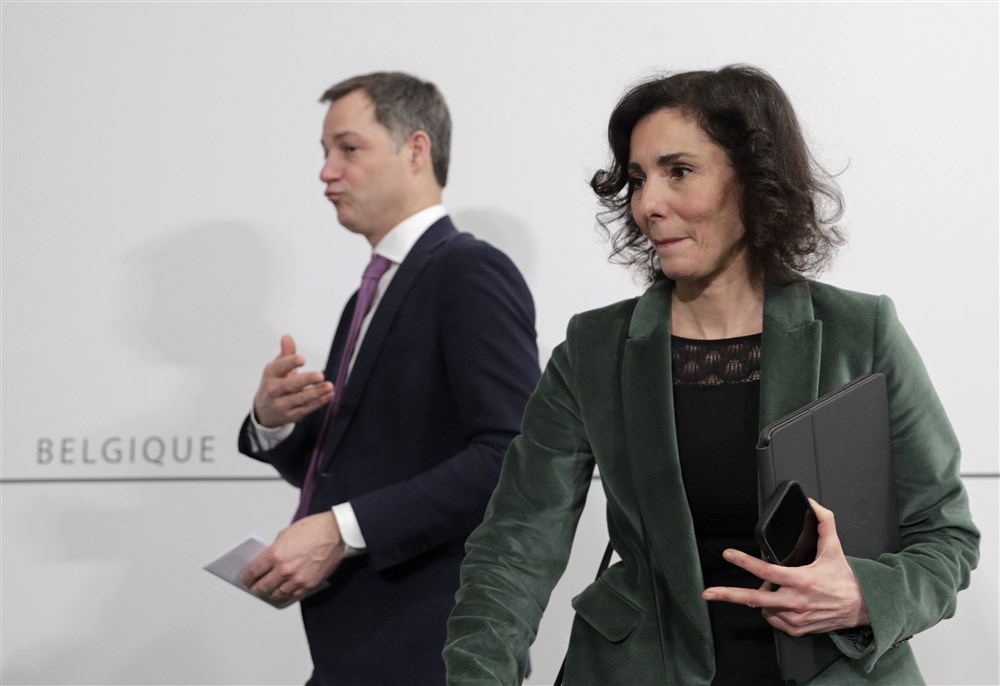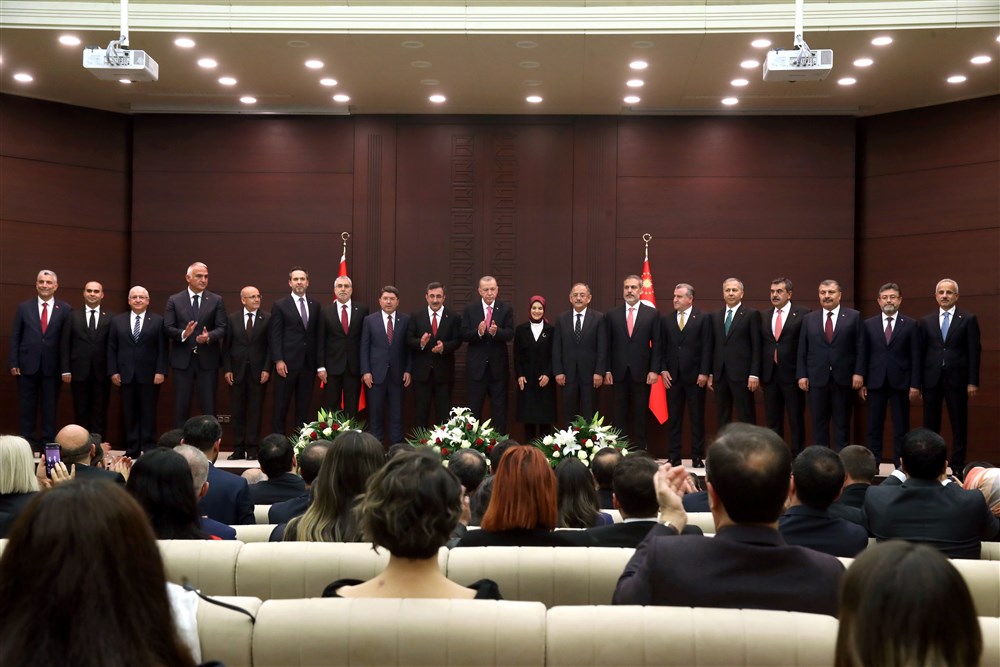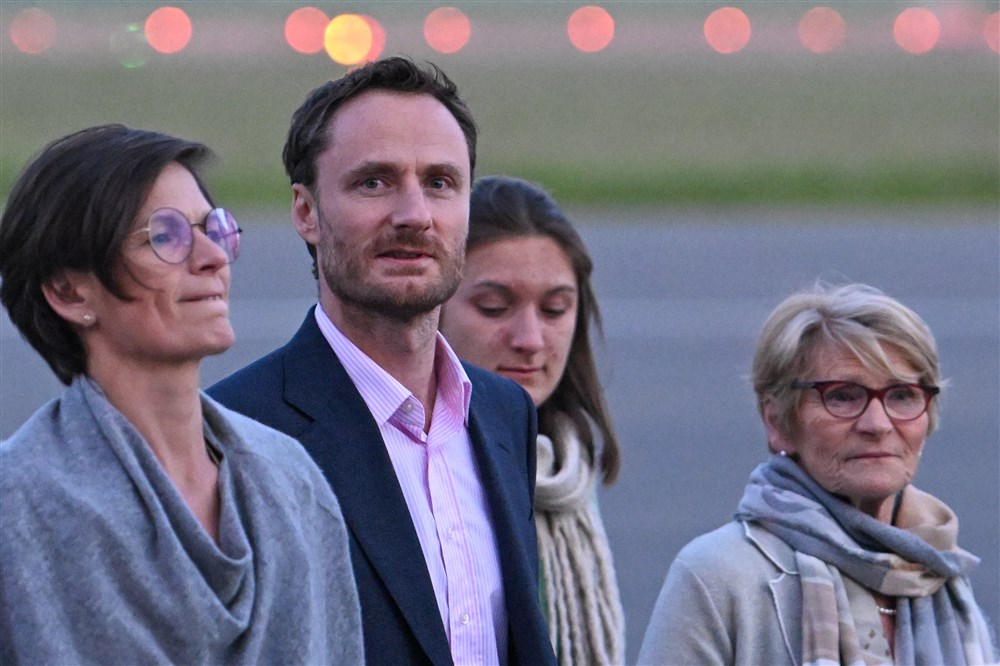A storm of such magnitude is brewing in Belgian politics that the very foundations of the country’s governmental systems could be under threat – with ministers apparently resorting to acts of outright physical aggression.
Belgium’s governing coalition, a motley crew of parties enjoying little ideological coherence, is facing a major crisis caused by a scandal that followed the visit of the hard-line Iranian Islamist mayor of Tehran, Alireza Zakani, and his entourage.
The apparent disintegration of reasonable parliamentary conduct was illustrated by Belgian media outlet Business AM. It revealed that, in a fit of fury, Frank Vandenbroucke, Belgian Minister of Health, had a physical altercation with Vincent Van Quickenborne, the Minister of Justice.
According to Business AM, Socialist Vandenbroucke grabbed his liberal colleague in a vice-like grip to prevent him from leaving a meeting.
The fact that Vandenbroucke’s behaviour has not been noted before may come as some surprise, according to Business AM. Another source told the outlet that he can “lose his temper at the slightest provocation”.
A top official added anonymously that: “In a system other than the democratic one, Frank would be a dangerous man.”
One unnamed minister who was present said of the latest example of alleged physical violence: “We were stunned.”
The crisis caused by the Iranian visit has come about just when difficult governmental decisions need to be made regarding crucial issues such as fiscal reform and an agreement on nuclear energy.
Those vital considerations are also being overshadowed by a groundswell of lurid accusations against Conner Rousseau, the leader of the Flemish Social-Democratic Vooruit party. They include what is now a third formal complaint by a man accusing him of inappropriate behaviour.
The alleged Vandenbroucke outburst is characteristic of a Belgian federal government that is now visibly unravelling amid unsuccessful efforts by Prime Minister, Alexander De Croo, to diffuse tensions sparked by the visit of Zakani.
De Croo also appears to be going out of his way to shield his foreign minister, Hadja Lahbib, regarding visas given to Zakani and his crew, despite what many view as glaring warning signs against their visit to Brussels. It has been revealed that Zakani refused to give his fingerprints, claiming he was a “member of the government”, despite fingerprinting being a requirement to secure a visit visa. Regardless, he was allowed in.
Further problematic issues are revealed in other internal emails regarding the visit. On June 8, the day the visas were granted, the Immigration Office advised against it and requested more information about 13 other guests in Zakani’s party who seemed to have been added to the group at the last minute.
However, the Foreign Affairs cabinet intervened and, with the help of the cabinet of the now resigned Pascal Smet, ensured the Iranians were permitted entry, despite only half of their number having been officially vetted.
A batch of internal emails seem to suggest proper procedures were not followed and that Foreign Office staff were well aware of this, many advising colleagues to make sure they were “archiving these conversations”.
Overall, the combined controversies provide a powder-keg of trouble that could bring down the federal government in Belgium. The only silver lining is the fact that domestic polls indicate almost all parties would lose in a general election, meaning a status quo may be the final outcome.
De Croo now appears to be desperately fire-fighting, suggesting that Lahbib make a symbolic gesture on June 26 when she will explicitly apologise for any perceived mistakes in order to placate the Socialists.
That may be a tall order, given they are enraged about what happened, particularly as their man Smet was forced to resign, unfairly shouldering most of the blame in their eyes. As far as they are concerned, regardless of remorse, many questions will remain on how Lahbib handled, or mishandled, the entire Iranian affair.
Adding to the pressure, it is not just the Socialists who have a bone to pick with the government.
The Green parties might also shake up the hornets’ nest. They are already of the opinion that De Croo wants to sweep green legislation under the carpet and feel even their decades-old trophy policy of an exit from nuclear power is in jeopardy.
As if to complete the picture of potentially catastrophic political meltdown, the third complaint against Rousseau may not be the last and further scandal may follow.
Rousseau’s party firmly stands by him, accusing those who have pressed charges of being “part of an operation aiming to damage” him, even referring to them as “far-right extremists”.
Whatever the final outcome, Belgian politics is clearly struggling to weather what has become a tsunami of outrage, aggression, accusations and counter-accusations.





